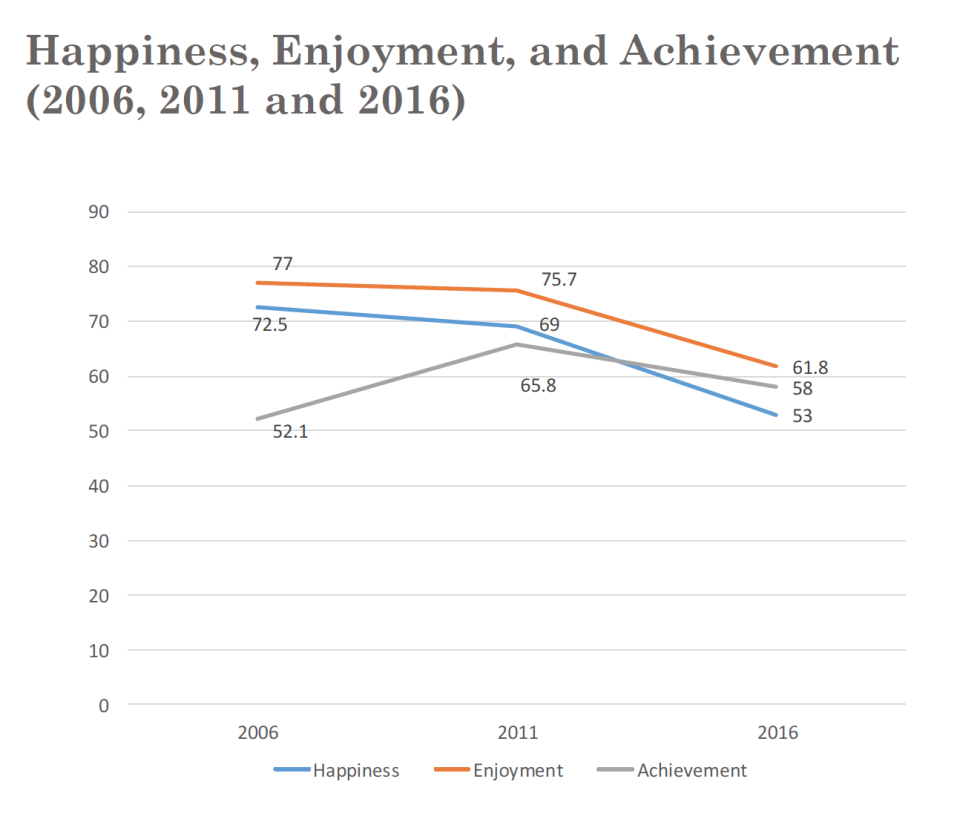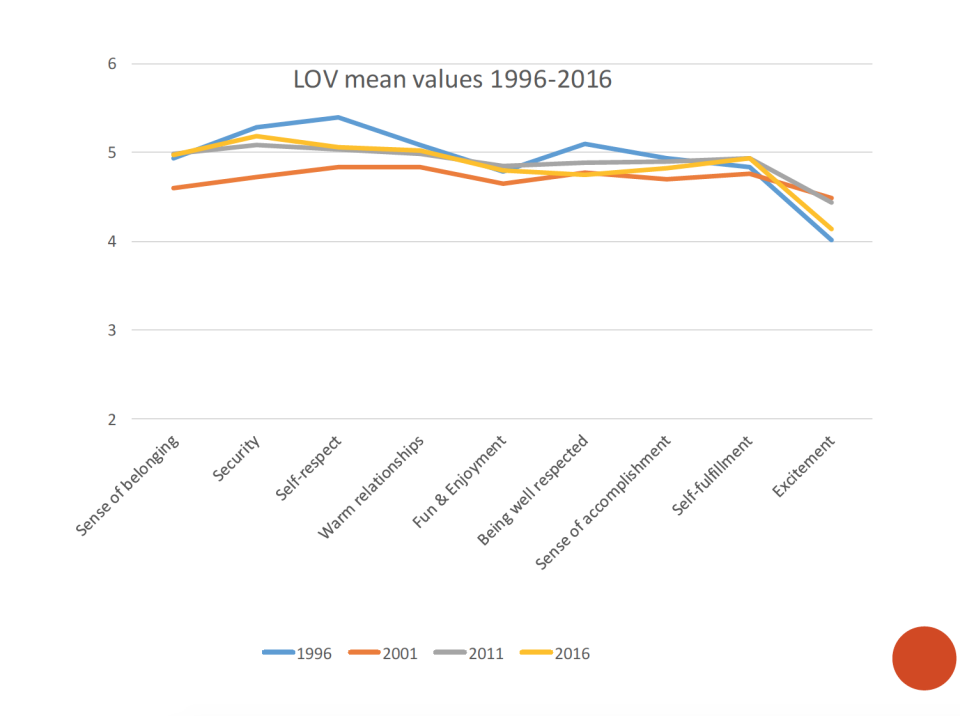Singaporeans less satisfied with quality of life and democratic rights: survey

Singaporeans are less satisfied with their overall quality of life and democratic rights compared with previous years, according to a survey conducted by two National University of Singapore (NUS) dons.
The findings were unveiled on Thursday (31 May) at NUS’ Shaw Foundation Alumni House as part of a book launch for “Happiness, Wellbeing and Society – What matters for Singaporeans” by its Business School associate professors Siok Kuan Tambyah and Tan Soo Jiuan.
The 2016/17 survey, funded by NUS, is the fifth in a series of studies which were previously conducted in 1996, 2001, 2006 and 2011.
A total of 1,503 Singaporean respondents – aged 15 years old and above – across a nationally-representative sample took part in the survey from October 2016 to February last year.

The survey found that Singaporeans, on average, were the least satisfied with their overall quality of life at a personal level in 2016, compared with the surveys in previous years.
Out of 15 choices, they were least satisfied with their household income followed by studies (for students), level of education attained, jobs (for working adults) and the standard of living.
On the other hand, Singaporeans were most satisfied with their interpersonal relationships, including those with their children, parents and siblings.
Singaporeans were, however, slightly more satisfied with the overall quality of life in Singapore.

Out of 25 aspects about living in the country, Singaporeans ranked the affordability of cars as being the least satisfied with, followed by the affordability of properties, cost of living, ratio of locals to foreigners, and affordability of healthcare.
“Increasingly (over the years), they are upset about the affordability of cars and properties, so you can surmise from there that they are concerned with the issue,” said Tan.
Singaporeans were the most satisfied with the level of safety and security in Singapore, followed by availability of public services, quality of law enforcement and education, the convenience of public transport, and quality of infrastructure.
The survey found that Singaporeans generally were less happy, enjoyed life less, and felt a decreased sense of achievement, compared with the findings in 2011.


“They don’t place as high as a value on fun and enjoyment, because all the while they are busy looking after their livelihood,” said Tan. “But what actually surprised me is that for the (past) surveys, (the rankings for) fun, enjoyment and excitement always never changed. Does that mean that in the past 20 years, Singapore remained as boring as before? That is something we need to look at.”
Tambyah added that while the relationship between income and indicators of well-being appeared to be slightly “upward trending”, those with higher incomes were not necessarily “the happiest”.
“A certain level of income is necessary to meet the basic needs and costs of living in Singapore,” she said. “But it comes to a point in time that’s a plateau or turning point where more income doesn’t make anyone happier or satisfied… We are seeing some of these happening in Singapore too.”
Dissatisfaction with democratic rights
Compared with the 2011 findings, Singaporeans were not as satisfied in six areas of democratic rights surveyed including the right to vote, and to gather and demonstrate.
The right to criticise the government was ranked the lowest followed by freedom of speech, especially among singles with medium levels of education aged 25 to 35 years old.
“It could be… a little knowledge is a big danger. People can be more questioning as they are more educated,” said Tan.

The study also found that there was a negative impact on the level of satisfaction with overall quality of life in Singapore when voters felt they could not influence government policy or action, and when government officials did not care about or pay attention to the citizens.
Corruption, on the other hand, did not have an impact on the level of satisfaction as respondents “generally believed it was not a major problem” in Singapore.
Singaporeans also wanted the government to step up in five main areas, with addressing the needs of the aging population being the most pressing, followed by moderating rising prices, helping the marginalised in society, improving the public transport system, and providing more resources for healthcare needs.
“Happiness, Wellbeing and Society – What matters for Singaporeans” is now available in Kinokuniya Ngee Ann City at $189.39 after GST, and can be bought in both hardback and digital editions on Amazon.
Other Singapore stories:
Man who repeatedly harassed, threatened to kill ex-girlfriend pleads guilty
Police officer admits to being member of 2 secret societies
Health Sciences Authority issues warning over 2 slimming products


